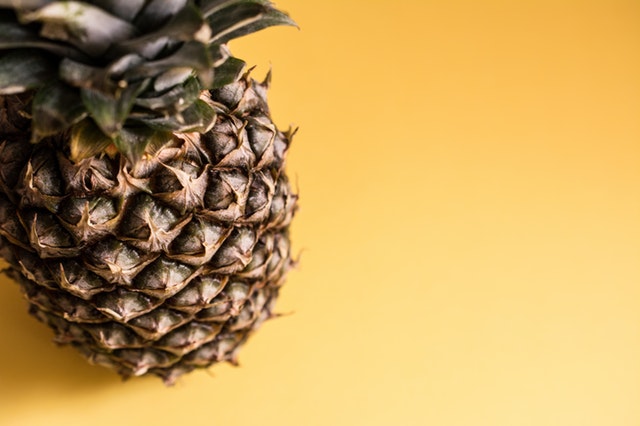
Get Smart! Snack on Pineapple to Maintain Brain Health This School Year
We all know the saying: a pineapple a day keeps the doctor away! Our favorite tropical fruit offers endless health benefits. Full of key nutrients like vitamin C, vitamin B, and potassium, pineapple can support your heart health, help your immune system, and even boost your brainpower. As we enter the new school year, it’s particularly important to keep our brain in mind – and pineapple is perfect for supporting both physical and mental health. Read on to learn more about why this fruit is the perfect brain-boosting snack for kids (and adults) this fall.
Vitamin C for Mental Health
While we most often associate vitamin C with boosting our immunity, it also helps our bodies create neurotransmitters like serotonin. This important chemical is key in boosting our moods and reducing stress. Plus, vitamin C is also known to improve your brain’s cognitive function, helping you think, learn, and problem solve.
Luckily, it’s easy to make sure your young scholars are getting plenty of vitamin C. Just one serving of pineapple can fulfill the recommended daily intake of the nutrient, and its natural sweetness means kids are sure to gobble it up. Try serving it as an after-school snack, or add it to their lunchbox for a midday boost.
Vitamin B for Cognitive Function
Pineapple contains a blend of vitamin B variations, including B-9, B-6, and B-2. Folate, or vitamin B-9, is a nutrient that we can only obtain through the foods we eat. The vitamin is known to help with reproducing red and white blood cells, converting carbohydrates to energy, and producing DNA. Most commonly found in dark leafy green vegetables, you can also find folate in fruits and fruit juices, including pineapple. Crucially, folate has been shown to have a role in protecting the brain from cognitive disorders like Alzheimer’s disease.
Like vitamin C, both folate and vitamin B-6 (Pyridoxine) have been linked to improving mood and helping people at risk of depression. B-6 also helps regulate hormones like serotonin and norepinephrine, a stress hormone. Further, it is an essential vitamin that leads to healthy brain development.
Vitamin B-2, or riboflavin, can also be found in pineapple. Research has shown that intake of vitamin B-2 and reduce the frequency of migraines. In fact, some studies have found that increased consumption of the nutrient can significantly lessen the number of severe migraine cases over a month.
Potassium for Concentration
Potassium as a whole is a very necessary key component in maintaining your overall health, including impacting your nervous system. Ensuring your diet contains the recommended potassium can enhance your cognitive activity, boosting both concentration and neural activity. Neural activity refers to the signals your brain sends to your nervous system, which in turn tells your muscles to move. Maintaining healthy potassium levels can even increase reflex skills! Further, potassium also helps carry oxygen to the brain, keeping it clear and ready to learn.
Keep in mind that it is possible for kids to get too much potassium – be sure to consult a list of potassium-rich foods and serve up a balanced diet!
Interested in learning more about pineapple? Sign up for our newsletter to get pineapple facts, tasty recipes, and more sent straight to your inbox.
Medical Disclaimer: The information, including but not limited to, text, graphics, images and other material contained on this website are for informational purposes only. This information is not intended to be a substitute for professional medical advice, diagnosis or treatment. Always seek the advice of your physician or other qualified healthcare provider with any questions you may have regarding a medical condition or treatment and before undertaking a new health care regimen, and never disregard professional medical advice or delay in seeking it because of something you have read.
More information can be found via resources at WebMD.
